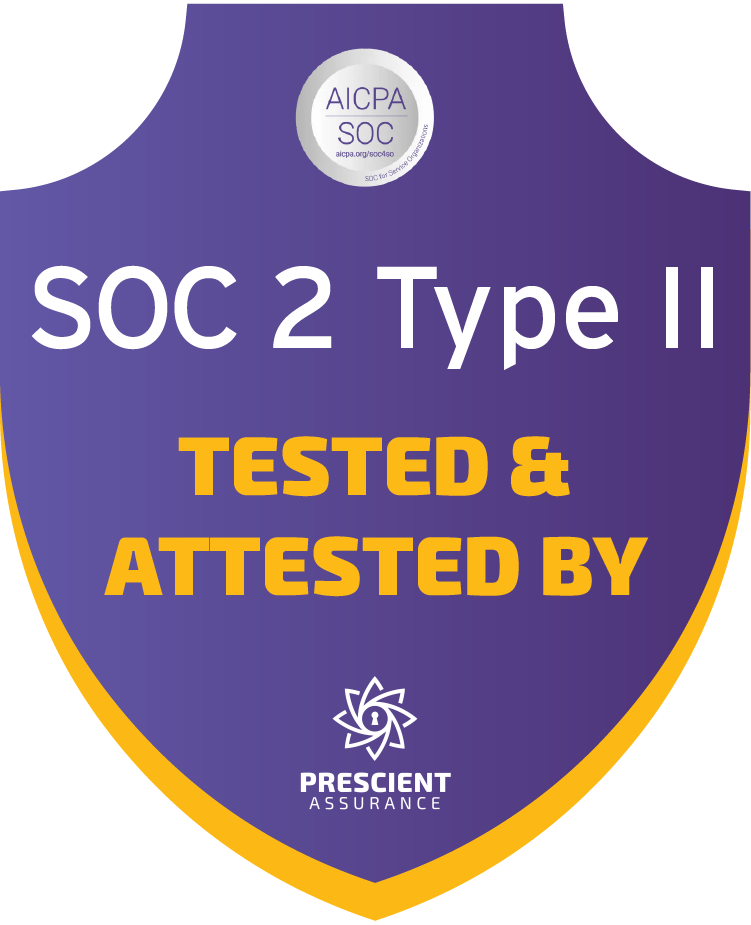This article breaks down the emerging concept of the AI Factory, a novel framework that represents a distinct business function where data is continuously transformed into intelligence through model training, simulation, and deployment. Unlike traditional AI projects, AI Factories operate as an integrated system for ongoing model development and optimization, forming the core infrastructure of modern enterprises. It explains why AI Factories are becoming the foundation of modern businesses and how they drive innovation, scalability, and competitive advantage across industries.
What you’ll learn:
- What defines an AI Factory and how it functions as the engine of AI-driven enterprises
- Why companies like Tesla and Amazon rely on AI Factories for continuous model improvement
- Key benefits: faster innovation, improved efficiency, and scalable AI deployment
- Challenges and risks, including cost, vendor lock-in, and ethical governance
- How AI Factory-as-a-Service makes advanced infrastructure accessible to all businesses
AI Factory at a Glance:
The concept of an "AI Factory" was introduced at GTC 2025 by NVIDIA CEO Jensen Huang, who stated, “Every company will have two factories... one for what they build, and one for the AI.” He predicts the emergence of AI as a core function in business, separate from traditional manufacturing or product development processes.
What Does “AI Factory” Even Mean?
At its core, an AI Factory is a virtual infrastructure system designed to ingest data, train models, simulate environments, and deploy AI into products. Harvard Business School defines it as “the engine that powers AI-driven companies — turning raw data into predictions.” Essentially, it is the proprietary AI development portion of a business, making AI a separate, integral function rather than an embedded feature.
- Agents = AI that end-users interact with
- Factories = Where AI is developed, refined, and deployed
Why it matters:
An AI Factory turns AI from ad-hoc projects into a continuous, production-grade capability. That matters because it delivers:
- Faster iteration & time-to-value: Integrated data pipelines, automated re-training, and CI/CD for models (MLOps) shorten experiment→deployment cycles and keep features shipping.
- Higher model quality in production: Built-in drift monitoring, A/B testing, observability, and feedback loops maintain accuracy as data and behavior change.
- Governance & compliance by design: Centralized model registry, lineage, RBAC, and policy enforcement support privacy and regulatory frameworks (e.g., SOC 2/ISO-aligned controls) without slowing delivery.
- Scalable AI infrastructure: Elastic GPU orchestration, high-speed interconnects, and hybrid/multi-cloud options let you scale training and real-time inference with predictable SLOs and costs.
- Cost control & efficiency: Workload right-sizing, GPU utilization tracking, and queue/batch optimization reduce waste and improve TCO whether on-prem, cloud, vagy AI Factory-as-a-Service.
AI Factory Infrastructure Solutions
So what makes an AI Factory possible beneath the surface?
At the foundation of every AI Factory lies a powerful infrastructure built for continuous learning and deployment.
- High-performance GPUs provide the computational backbone for model training, simulation, and inference.
- High-speed interconnects ensure low-latency communication between servers and GPUs, enabling massive distributed training.
- Scalable storage systems manage the constant flow of data — from raw ingestion to processed insights — without bottlenecks.
- Orchestration and monitoring software coordinate model pipelines, automate retraining, and track performance across environments.
Together, these elements create an end-to-end AI development ecosystem — a true “factory” where data becomes intelligence, and intelligence becomes deployable products.
Why Should Business Leaders Care?
What’s the shift?
AI Factories turn AI from a one-off project into an operational system a permanent function driving ongoing business growth. AI Factories represent a strategic shift across industries, from automotive and finance to healthcare and retail. Here’s why companies need to take notice:
AI Factories represent a strategic shift across industries, from automotive and finance to healthcare and retail. Here’s why companies need to take notice:
AI Is Becoming the Core of Products & Operations
AI is no longer just a feature—it is the product. From self-driving software and personalized health diagnostics to real-time financial modeling, AI is redefining how businesses operate and innovate. Companies investing in dedicated AI Factories are better positioned to sustain and scale these capabilities.
Tesla, for example, doesn’t just manufacture cars—it runs an AI Factory that continuously improves its self-driving models based on real-world data. Similarly, financial institutions leverage AI Factories to refine fraud detection models, adapting to new threats in real time.
AI Development Is Not a One-Time Process
AI is iterative. Models degrade over time due to data drift, evolving customer behavior, and environmental changes. To maintain relevance and performance, businesses need an ongoing AI Factory infrastructure that can:
- Re-train models to adapt to new data
- Run simulations to improve accuracy
- Monitor inference quality to prevent performance decline
- Manage deployment pipelines for continuous improvements
Much like traditional factories refine their production processes, AI Factories ensure that AI-driven products remain competitive and continuously improve over time.
Competitive Edge: Faster Deployment, Deeper Insights, Smarter Products
Companies leveraging AI Factories can:
- Launch and iterate AI-powered features faster
- Deliver smarter, more personalized products
- Gain deeper insights from their data
Retail giants like Amazon and Walmart, for instance, operate AI Factories to refine supply chain optimizations and predictive analytics, allowing them to anticipate demand and reduce waste more effectively than competitors.
AI Factory as a Service (AI FaaS)
What if you could access an AI Factory without building one from scratch?
For many organizations, constructing a full-scale AI Factory is beyond budget or expertise. That’s where AI Factory as a Service (AI FaaS) comes in — a model that lets businesses use cloud-hosted or partner-managed AI infrastructure.
With AI FaaS, enterprises can:
- Start small without the massive upfront cost of GPUs and facilities.
- Scale instantly, expanding compute power as their AI workloads grow.
- Pay-as-they-go, aligning spending with project needs and avoiding idle resources.
By partnering with infrastructure providers like GMI Cloud, even mid-sized companies gain access to world-class AI development environments — making AI truly accessible beyond tech giants.
Is This Just Another Buzzword?
Like “AI Agents,” the term “AI Factory” might eventually merge into broader enterprise IT discussions. However, the concept itself—scalable, repeatable AI development—is already a competitive necessity. Whether or not it becomes an industry-standard term, companies that invest in AI Factories today will lead their industries tomorrow.
The Positive Impacts of AI Factories
Faster Innovation
AI Factories enable rapid iteration and testing of thousands of models simultaneously, reducing time-to-market and improving product cycles.
Operational Efficiency
Integrating AI pipelines into daily workflows reduces manual effort, eliminates silos, and automates complex decision-making.
Scalability
AI Factories seamlessly scale AI workloads from local to global and from edge to cloud, ensuring businesses stay agile.
Greater Control Over Data & Outcomes
By running their own AI Factories, enterprises gain better control over data governance, privacy, and model behavior—critical for compliance and differentiation.
Industry Examples of Artificial Intelligence Factories
How are AI Factories already reshaping industries today?
The AI Factory concept isn’t just theoretical — it’s already transforming critical sectors worldwide:
- Healthcare: Accelerating drug discovery and diagnostic AI through continuous model refinement.
- Automotive: Powering autonomous driving R&D with real-world simulation and retraining cycles.
- Finance: Enhancing fraud detection systems that adapt to new threat patterns in real time.
- Retail: Streamlining supply chain optimization and predictive inventory management.
These use cases show that wherever data exists, an AI Factory can turn it into competitive intelligence.
The Risks & Challenges of AI Factories
What to watch for:
Building and maintaining an AI Factory involves more than just compute power it requires careful attention to cost efficiency, governance, and ethical AI design. Business and technology leaders should plan strategically around the following risks to ensure sustainable, scalable AI operations:
- Infrastructure cost & complexity: Establishing an AI Factory demands significant investment in GPU clusters, storage scalability, and engineering talent. Organizations must balance capital expenditure with long-term ROI, using AI infrastructure cost management strategies and AI Factory-as-a-Service models to stay agile.
- Vendor lock-in and interoperability risks: Many AI Factories rely heavily on specific cloud platforms or proprietary frameworks, limiting flexibility. To maintain architecture portability and data sovereignty, businesses should consider open-source and hybrid AI infrastructure solutions.
Ethical and compliance challenges: As AI systems scale, so do risks of bias, opacity, and automated decision errors. Implementing strong AI governance frameworks, auditability tools, and responsible AI policies ensures fairness, transparency, and compliance with emerging regulations.
Despite the benefits, AI Factories introduce challenges that businesses must navigate:
Cost & Complexity
Setting up an AI Factory requires significant capital expenditure, software engineering expertise, and skilled AI talent. Companies should evaluate whether to build in-house or leverage external AI infrastructure providers.
Vendor Lock-in & Centralization Risks
Many AI Factories depend on specific hardware, cloud platforms, or proprietary frameworks, creating dependencies that can limit flexibility. Businesses should explore open-source and hybrid solutions to avoid lock-in.
Ethical Risks
Without governance, AI Factories can perpetuate biases, reduce transparency, or automate harmful decisions at scale. Implementing ethical AI frameworks is critical to long-term success.
Building a Future-Ready AI Factory Strategy
How can organizations turn challenges into long-term advantage?
To succeed, leaders must approach their AI Factory strategy with foresight and balance:
- Invest in hybrid infrastructure that combines on-prem performance with cloud flexibility.
- Ensure interoperability to avoid vendor lock-in and maintain architectural freedom.
- Adopt strong AI governance frameworks that emphasize transparency and ethical model use.
- Align AI Factory goals directly with core business objectives to ensure measurable ROI.
A clear strategy transforms the AI Factory from an experimental initiative into a sustainable, growth-driving engine for the entire organization.
Making AI Factories More Accessible
While tech giants have built their own AI Factories, other businesses can take advantage of AI Factory-as-a-Service solutions. These provide the necessary infrastructure without requiring massive capital investments, making AI more accessible to mid-sized enterprises and startups.
Businesses should explore partnerships with AI infrastructure providers to:
- Access cutting-edge AI hardware and software without upfront costs
- Scale AI workloads flexibly
- Leverage expertise in AI model training, deployment, and monitoring
Why this is encouraging:
Because AI Factory-as-a-Service (AI FaaS) represents a major step toward the democratization of AI infrastructure. These cloud-hosted and partner-managed models make it possible for businesses of any size from startups to large enterprises to access high-performance compute environments, GPU acceleration, and automated MLOps pipelines without the prohibitive upfront cost of hardware or facilities.
For mid-sized organizations and emerging innovators, this shift means:
- Lower barriers to entry: Build and deploy AI models faster using ready-to-scale AI infrastructure without capital-intensive investments.
- Operational agility: Instantly scale AI workloads across multi-cloud or hybrid environments, adapting to project demand in real time.
- Expert-led efficiency: Leverage provider expertise in AI model training, deployment automation, and infrastructure monitoring to reduce engineering overhead.
Cost alignment with growth: Adopt pay-as-you-go pricing that ties expenses directly to active AI workloads, optimizing TCO (total cost of ownership).
The Road Ahead for AI Factories
Where is the AI Factory movement heading next?
As AI adoption accelerates, AI Factories will evolve toward greater automation and accessibility. Expect to see:
- Integrated edge computing bringing AI inference closer to real-world data sources.
- Increased orchestration automation, allowing models to self-optimize through feedback loops.
- Widespread democratization via cloud-based, service-oriented AI Factory models.
Ultimately, the future AI Factory won’t just train models — it will continuously learn, scale, and adapt on its own, becoming the central nervous system of modern enterprises.
Key Takeaways
- AI Factories are becoming an essential part of modern business operations, enabling continuous AI development and deployment.
- They provide faster innovation, operational efficiency, and scalability while also posing challenges related to cost, vendor lock-in, and ethical considerations.
- Companies that strategically implement AI Factories will gain a competitive advantage by developing smarter, more adaptive AI-driven products and services.
Final Thoughts
The question isn’t whether AI will impact your business—it’s how soon and to what extent. AI adoption often starts with small, targeted implementations: automating processes, enhancing customer interactions, or optimizing decision-making. But as AI becomes more integral, companies must think beyond individual models and features.
What happens when AI is at the core of your operations? When models need to evolve continuously? When automation and intelligence become competitive necessities? This is where the AI Factory concept comes into play.
Now is the time for business leaders to ask:
- Are we ready to scale AI in our organization?
- How can we begin structuring AI development more systematically?
- What investments or partnerships will help us build the right AI infrastructure?
By thinking ahead, companies can proactively shape their AI strategy—rather than scrambling to keep up. AI Factories are not just for tech giants; they will define the future of innovation for businesses of all sizes. The sooner organizations start laying the foundation, the better positioned they’ll be to lead in an AI-driven economy.
Frequently Asked Questions about What an AI Factory Is — and Why It Matters Now
1. What does “AI Factory” mean in this article?
It’s the virtual infrastructure a company uses to ingest data, train models, run simulations, and deploy AI into products. As Harvard Business School puts it, it’s the engine that turns raw data into predictions a distinct, ongoing function of the business rather than a one-off feature.
2. Why should business leaders care right now?
Because AI is becoming the core of products and operations, not a bolt-on. Firms that build AI Factories iterate faster, personalize smarter, and learn more from data, gaining a durable edge as AI adoption accelerates across industries like automotive, finance, healthcare, and retail.
3. How is an AI Factory different from traditional AI projects?
Traditional projects are often one-and-done. An AI Factory is continuous and iterative: it re-trains models, runs simulations, monitors inference quality, and manages deployments so models keep pace with data drift, changing behavior, and new environments.
4. What practical benefits do AI Factories deliver?
The article highlights faster innovation (rapid model iteration), operational efficiency (integrated pipelines that reduce manual work), scalability (from edge to cloud), and greater control over data governance, privacy, and model behavior for compliance and differentiation.
5. What are the main risks and challenges?
Three stand out: cost and complexity (capital, engineering, and talent needs), vendor lock-in/centralization (dependencies on specific hardware, clouds, or frameworks), and ethical risks (bias, opacity, harmful automation). The remedy is deliberate governance and exploring open-source or hybrid approaches.
6. How can companies get started without building everything in-house?
The piece points to AI Factory-as-a-Service: partner with AI infrastructure providers to access cutting-edge hardware/software, scale workloads flexibly, and tap expert training, deployment, and monitoring so teams can move now while planning longer-term investments.





.png)





